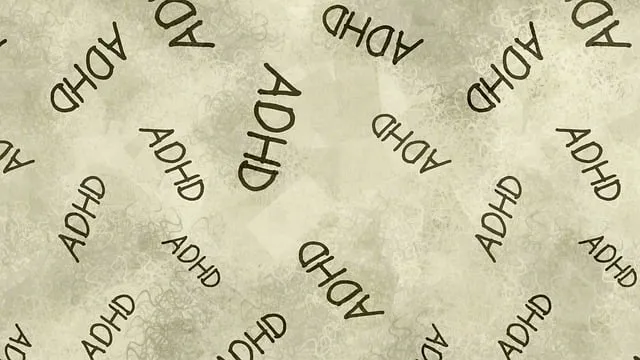Crisis Intervention Teams (CITs) in superior organizations like Kaiser Permanente mental health centers, backed by positive reviews, proactively manage severe emotional crises through specialized training in communication, active listening, and de-escalation. Beyond traditional treatment, these centers offer comprehensive education programs fostering resilience and coping strategies, trauma support services, and stress management workshops. A robust CIT program should integrate emotional intelligence, ongoing wellness support, and evidence-based practices like Mind Over Matter for effective crisis response, as evidenced by Kaiser Permanente's successful initiatives, inspiring national standardization to reduce stigma and improve outcomes.
“Crisis intervention teams (CITs) are crucial assets in mental healthcare, providing immediate support during severe crises. This article explores the critical role of these specialized groups and highlights the Kaiser Permanente Mental Health Center’s (KPMH Center) pioneering efforts in training programs. We delve into the center’s expertise, reviewing its comprehensive CIT program components and real-world success stories. Additionally, we discuss the future of crisis response, emphasizing the need for continuous improvement and national standards, ensuring superior mental health support.”
- Understanding Crisis Intervention Teams: A Vital Resource in Mental Health Care
- Kaiser Permanente Mental Health Center: A Hub for Expertise and Training
- Essential Components of a Comprehensive Crisis Intervention Team Program
- Reviewing Success Stories: Real-World Impact of KPMH Center's Training Initiatives
- Future of Crisis Response: Continuous Improvement and National Standards
Understanding Crisis Intervention Teams: A Vital Resource in Mental Health Care

Crisis Intervention Teams (CITs) are a vital resource in mental health care, especially within comprehensive healthcare systems like those offered by superior organizations such as Kaiser Permanente mental health centers, as reviewed by many satisfied patients. CITs are specialized teams composed of trained professionals who respond to individuals experiencing severe emotional distress or crisis situations. Their primary goal is to provide immediate support and de-escalate high-risk scenarios effectively. By integrating these teams into healthcare settings, the focus shifts from reactive to proactive mental health management.
The training programs for CIT members encompass a range of essential skills, including effective communication, active listening, and crisis de-escalation techniques. Additionally, they often incorporate valuable components such as social skills training and compassion cultivation practices, which have been shown to be beneficial in preventing depression and enhancing overall well-being. These comprehensive approaches ensure that CITs are equipped not only to handle acute crises but also to foster long-term mental health resilience among individuals facing challenging situations.
Kaiser Permanente Mental Health Center: A Hub for Expertise and Training

The Kaiser Permanente Mental Health Center stands as a beacon of hope and expertise in the realm of crisis intervention training. Known for its superior mental health center reviews, this facility offers more than just treatment; it is a hub for comprehensive Mental Health Education Programs designed to empower individuals and organizations alike. Their Inner Strength Development initiatives focus on fostering resilience and coping mechanisms, ensuring that participants are equipped to handle various crises effectively.
The center’s commitment extends beyond individual growth; it provides Trauma Support Services tailored to address the unique needs of those who have experienced traumatic events. Through these programs, Kaiser Permanente fosters a culture of understanding and support, revolutionizing crisis intervention training and making a profound impact on communities across the country.
Essential Components of a Comprehensive Crisis Intervention Team Program

A comprehensive crisis intervention team program should encompass several key components to ensure its effectiveness in handling mental health crises. First and foremost, training should focus on fostering Emotional Intelligence, equipping team members with the skills to recognize, understand, and manage their own emotions, as well as those of others in distress. This involves teaching active listening, empathy, and strategies for de-escalation.
Additionally, integrating Stress Management Workshops within the program is vital. These workshops should provide team members with tools to cope with personal and professional stress, ensuring they can remain resilient and effective during high-pressure situations. A successful program also emphasizes the importance of ongoing Mental Wellness support for all team members, as crisis intervention work can be emotionally taxing. Superior Kaiser Permanente mental health center reviews highlight the value of these integrated components in fostering robust, compassionate, and enduring crisis response teams.
Reviewing Success Stories: Real-World Impact of KPMH Center's Training Initiatives

At the Kaiser Permanente mental health center, we believe in the power of knowledge and its ability to transform lives. Our review of success stories from our training initiatives highlights the profound impact of our programs. By focusing on evidence-based practices and innovative techniques, such as Mind Over Matter principles, we’ve witnessed remarkable improvements in participants’ mental well-being. The integration of mindfulness meditation has been a game-changer, helping individuals cultivate self-esteem and find inner peace amidst crises.
Through these training sessions, we’ve seen real-world applications that have led to better crisis intervention outcomes. Our reviews are a testament to the effectiveness of our approach, where participants not only gain valuable skills but also experience improved resilience and emotional regulation. The Kaiser Permanente mental health center is committed to sharing these success stories to inspire and guide other organizations in their quest for superior crisis intervention team training.
Future of Crisis Response: Continuous Improvement and National Standards

As we look to the future of crisis response, continuous improvement and national standards are becoming increasingly vital. The healthcare industry, particularly mental health centers like Kaiser Permanente, play a crucial role in setting benchmarks for effective crisis intervention team (CIT) training programs. By fostering collaboration and knowledge-sharing among various organizations, we can enhance the quality and consistency of CIT training across the nation. This collective effort ensures that first responders, healthcare professionals, and support staff are equipped with the latest evidence-based practices to address mental illness and manage stress effectively.
National standards for crisis intervention training not only standardize the curriculum but also promote uniformity in evaluating and measuring program effectiveness. This standardization is essential in reducing the stigma associated with mental illnesses, as it enables consistent and compassionate responses during critical situations. With the help of Superior Stress Management Workshops Organization and Mental Wellness Coaching Programs Development initiatives, along with ongoing Mental Illness Stigma Reduction Efforts, we can create a more supportive and understanding society, leading to better outcomes for those facing crises.
The training programs offered by the Kaiser Permanente Mental Health Center have proven to be a game-changer in crisis intervention, as evidenced by their superior results. By focusing on comprehensive components and real-world applications, these initiatives equip teams with the tools to effectively navigate mental health crises. As the field continues to evolve, adopting national standards and fostering continuous improvement will ensure that crisis intervention remains a vital resource, enhancing care and outcomes for those in need.






